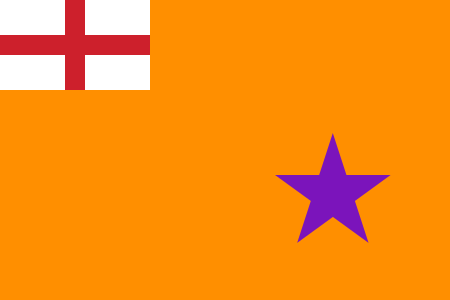충의 오렌지단

충의 오렌지단(Loyal Orange Institution)은 북아일랜드에 본부를 둔 국제 개신교 남성친목단체다. 저지 스코틀랜드와 영연방 곳곳에 지회를 두고 영향력을 행사하고 있으며 미국과 토고에도 지회가 있다. 흔히 오렌지단(Orange Order)이라고 부른다.[1][2][3]
오렌지단은 신구교간 종파갈등이 극에 달했던 1795년 아마주에서 창단되었다. 그 형식은 프리메이슨과 유사하되 개신교에 충실하기로 했다.
오렌지단이라는 이름은 재커바이트의 난에서 천주교 군주인 제임스 2세를 무찔렀던 개신교도 왕 윌리엄 3세가 오렌지 공의 작위를 가지고 있었음에서 유래했다. 단원들은 오렌지색 현장(懸章)을 패용하고 오렌지멘(Orangemen)이라고 칭한다. 매년 7월 12일에 오렌지 행진이라는 가두행진을 벌이는 것으로 유명하다.
오렌지단은 기본적으로 영국의 연합주의를 따르는 보수단체로,[4][5] 얼스터 충성주의와도 연관이 있다. 2014년에는 스코틀랜드의 독립에 반대하는 운동을 펼쳤다.[6] 오렌지단은 자기들이 개신교도의 민권과 종교자유를 방어한다고 보고 있는 반면 비판자들은 이들이 종파주의적이고 개선주의적이라고 주장한다.[7][8][9][10] 북아일랜드의 왕당파 준군사조직들과의 연관성 역시 비난거리다. 기본적으로 개신교 단체이기에 비개신교도는 개종하지 않으면 단원으로 받아들이지 않으며, 천주교도와 결혼한 개신교도도 받아주지 않는다.[11][12][13] 이들의 연례 행사인 오렌지 행진은 주변의 천주교도 및 아일랜드 민족주의자들을 쉽게 자극하며, 폭력사태로 이어지는 경우도 적지 않다.[14][15]
같이 보기
[편집]각주
[편집]- ↑ Page, Chris (2015년 8월 30일). “Orange Order on the equator: Keeping the faith in Ghana” (영어). BBC. 2017년 5월 16일에 확인함.
It is perhaps unsurprising that the order has outposts in countries like Australia and Canada where ex-pats from Northern Ireland have emigrated. But that is not how the order took root in the West African countries Ghana and Togo. The first Orange lodge in what is now Ghana was founded in 1918.
- ↑ Benedetto, Robert; McKim, Donald K. (2009년 10월 6일). 《Historical Dictionary of the Reformed Churches》. Scarecrow Press. 353쪽. ISBN 978-0-8108-7023-9.
Most of the organization's lodges are located in Northern Ireland, England, and Scotland, although others can be found throughout the British Commonwealth, including Canada, Australia, New Zealand and Africa. The lodges of every country are independent, but the Orange Order meets in a triennial world council.
- ↑ “Welcome to the Grand Orange Lodge”. Orange Order. 2014년 10월 6일에 원본 문서에서 보존된 문서. 2013년 5월 15일에 확인함.
We are a Protestant fraternity with members throughout the world. Autonomous Grand Lodges are found in Scotland, England, the United States of America, West Africa, Canada, Australia and New Zealand.
- ↑ Unionist Forum statement. Grand Orange Lodge of Ireland. 9 January 2013. Retrieved 12 July 2014.
- ↑ Twelfth Resolutions 2013 Archived 2014년 10월 28일 - 웨이백 머신. Grand Orange Lodge of Ireland. Retrieved 12 July 2014.
- ↑ "Scottish independence: Orange Lodge registers to campaign for a 'No' vote". BBC News. 25 June 2014. Retrieved 12 July 2014.
- ↑ “Orangemen take part in Twelfth of July parades”. 《BBC News》. 2010년 7월 12일. 2010년 8월 25일에 확인함.
Some marches have been a source of tension between nationalists who see the parades as triumphalist and intimidating, and Orangemen who believe it is their right to walk on public roads.
- ↑ “Protestant fraternity returns to spiritual home”. 《Reuters》. 2009년 5월 30일. 2020년 9월 20일에 원본 문서에서 보존된 문서. 2010년 8월 25일에 확인함.
The Orange Order's parades, with their distinctive soundtrack of thunderous drums and pipes, are seen by many Catholics in Northern Ireland as a triumphalist display.
- ↑ “Ormeau Road frustration”. 《An Phoblacht》. 2000년 4월 27일. 2010년 8월 25일에 확인함.
The overwhelming majority of nationalists view Orange parades as triumphalist coat trailing exercises.
- ↑ “Kinder, gentler or same old Orange?”. 《Irish Central》. 2009년 7월 23일. 2010년 8월 25일에 확인함.
The annual Orange marches have passed relatively peacefully in Northern Ireland this year, and it seems a good faith effort is underway to try and reorient the day from one of triumphalism to one of community outreach and a potential tourist attraction ... The 12th may well have been a celebration of a long ago battle at the Boyne in 1690, but it came to symbolize for generations of Catholics the "croppie lie down" mentality on the Orange side. The thunderous beat of the huge drums was just a small way of instilling fear into the Nationalist communities, while the insistence on marching wherever they liked through Nationalist neighborhoods was also a statement of supremacy and contempt for the feelings of the other community.
- ↑ "... No catholic and no-one whose close relatives are catholic may be a member." Northern Ireland The Orange State, Michael Farrell
- ↑ McGarry, John & O'Leary, Brendan (1995). 《Explaining Northern Ireland: Broken Images》. Blackwell Publishers. 180쪽. ISBN 978-0-631-18349-5.
- ↑ Lynch, Paul (2005년 10월 31일). “Perspective – The Orange Marches”. Australian Broadcasting Commission. 2013년 5월 28일에 확인함.
- ↑ Curtis, Jennifer (2014). 《Human Rights as War by Other Means: Peace Politics in Northern Ireland》. 122쪽.
Loyal (Protestant) orders, the largest being the Orange Order, hold the most well-known and controversial parades.
- ↑ Reardon, Lawrence C. (2006). 《The Catholic Church and the Nation-State: Comparative Perspectives》. 126쪽.
The 'Marching Days' beginning on July 12 each year ... are considered highlights of the Protestant calendar. Unfortunately, the 'Marches wind their way through Catholic enclaves, a provocative move that ensures resistance, trouble, and often violence.